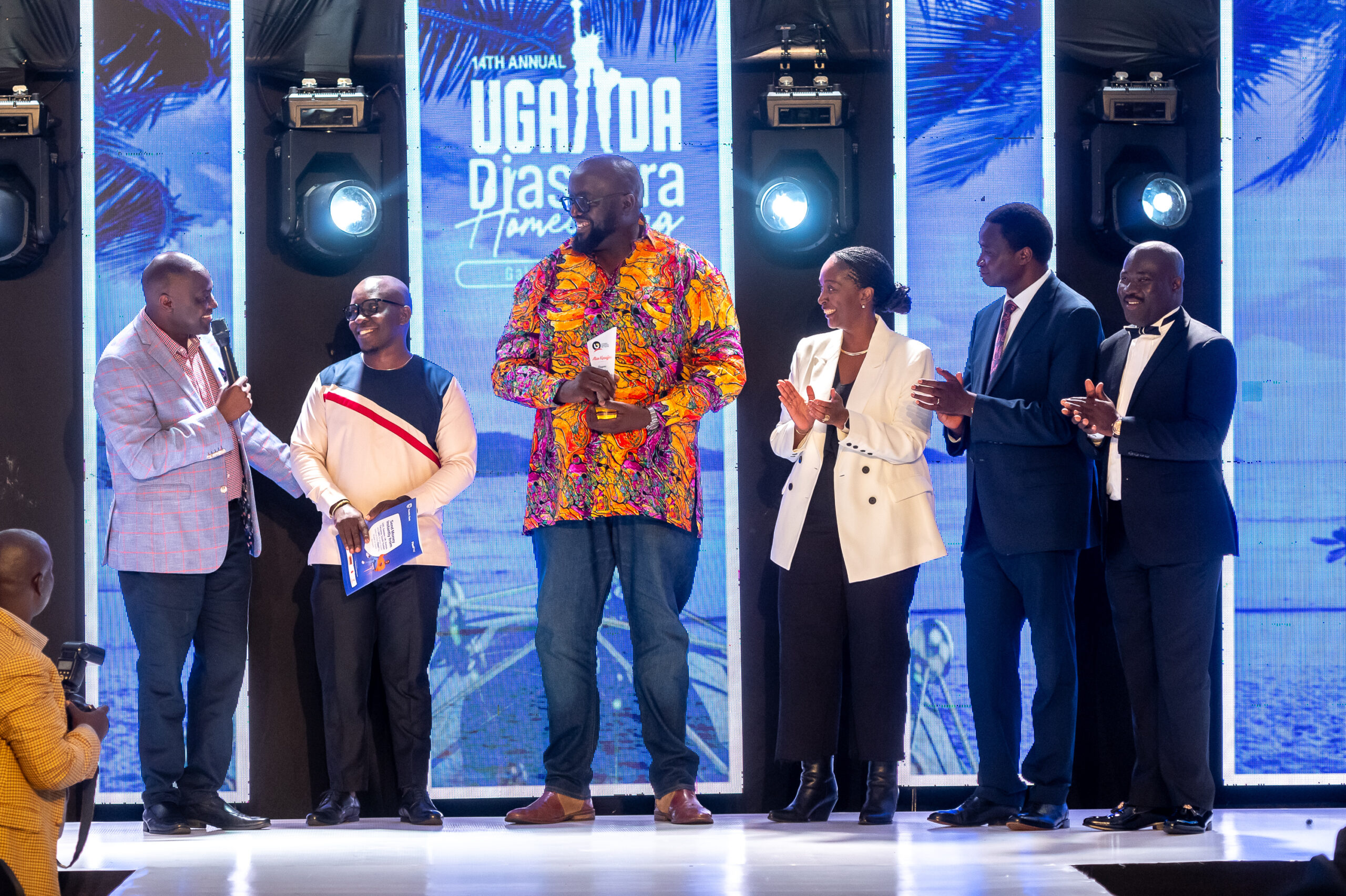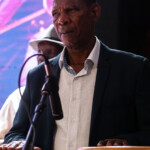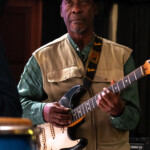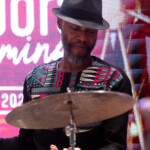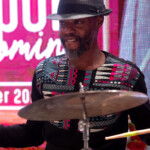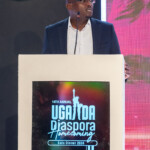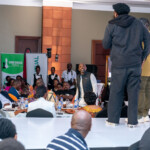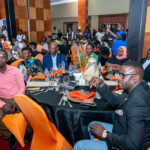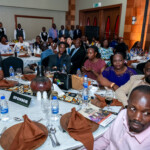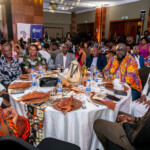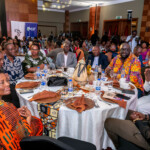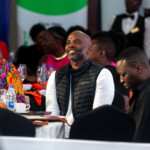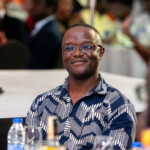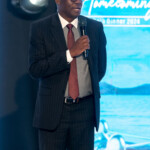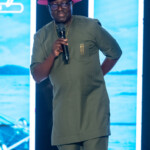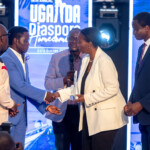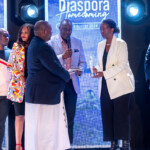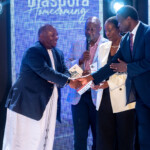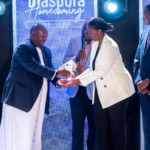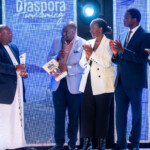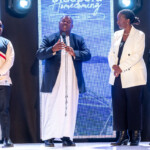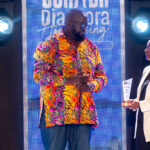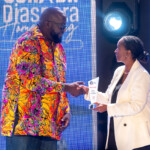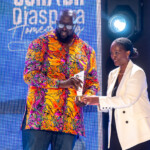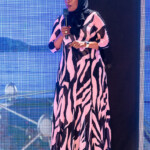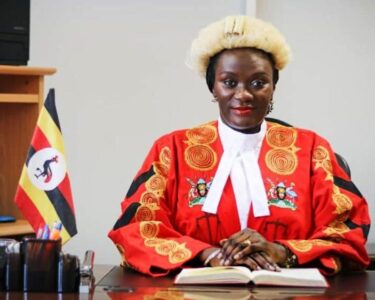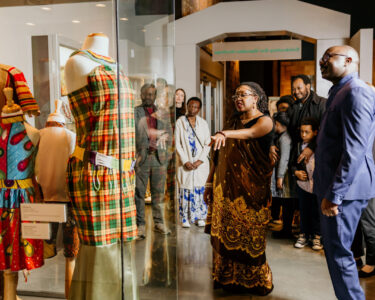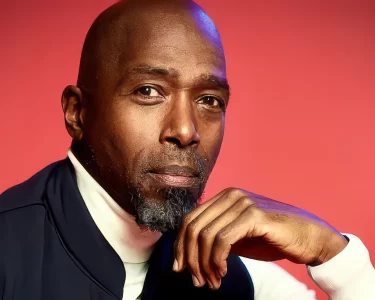I have always heard about the Uganda Diaspora Network Gala but never came around to attend it. Every year my aunt convinced me to go and every year I turned her down as most introverts would if they heard that a gathering is involved. However, this time around she had gone all out, buying as many tickets as she could for as many people as possible for the Uganda Diaspora Gala dinner. And I decided to tag along, since the alternative—staying in bed—would be such a waste for a fine December evening.
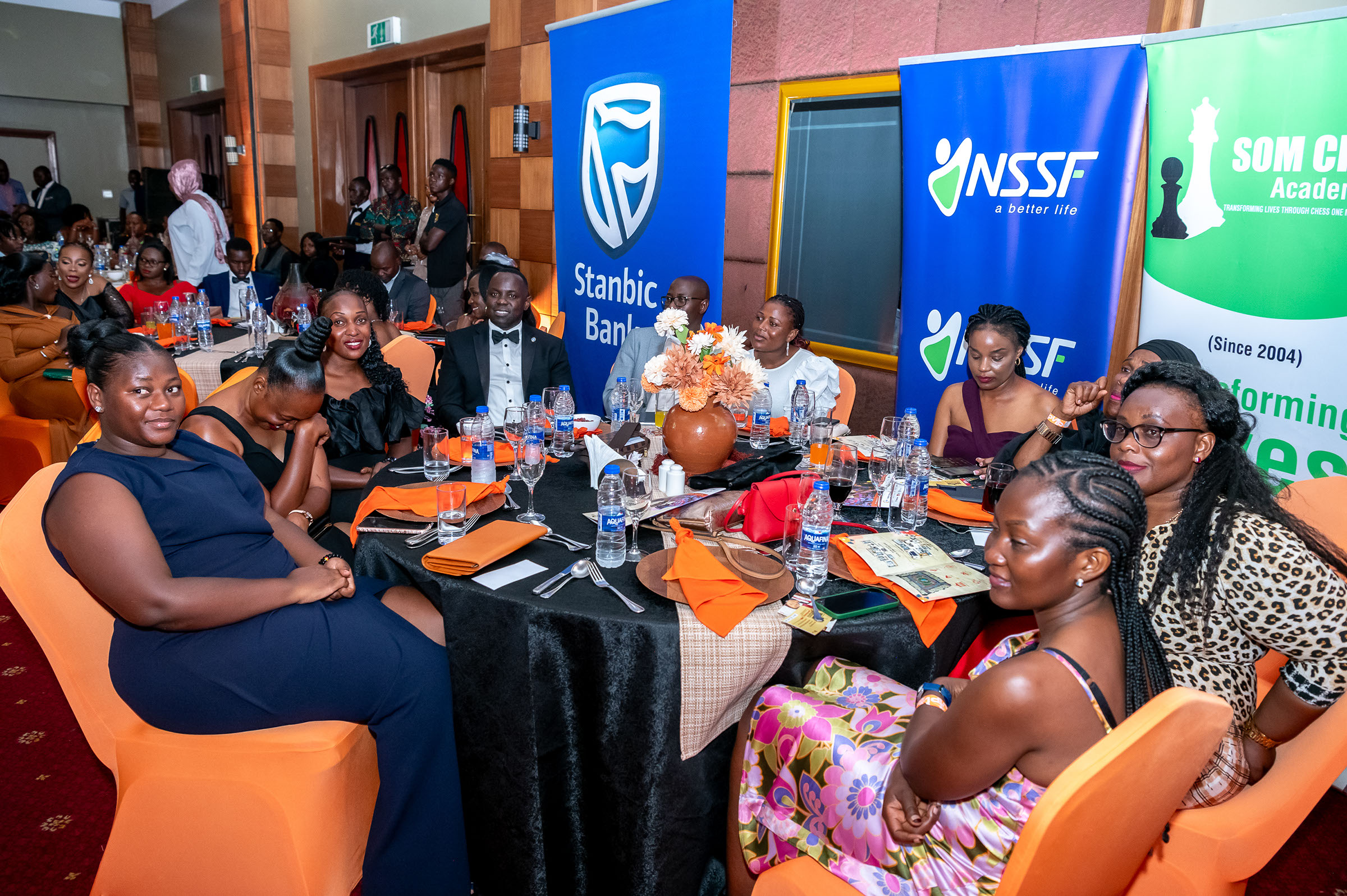
I found myself at Sheraton Kampala Hotel’s Victoria Ballroom on December 30, 2024, surrounded by basama, as Ugandans living abroad are fondly referred to, and all kinds of other revellers dressed to kill. For me, like some others, it was a first-time experience and I wasn’t sure what to expect, although, if I’m being honest, my expectations for Ugandan entertainment events weren’t particularly high.
As the hall filled up, the crowd outside the ballroom buzzed with anticipation, all faces and sizes mingling for the first interaction as we waited to go inside. Even though I am not eager when it comes to small talk, I was fortunately surrounded by my relatives—most of whom were more than happy to engage. But even more refreshing was the variety of drinks that kept flowing. And this would go on throughout the whole night.
One of my cousins, Suubi Kimuli, a singer, songwriter, and poet, was set to perform a spoken word act. Before long, we were ushered to our seats, and to my relief, three of the tables around us were occupied by family members. That meant I was spared the dreadful fate of being stuck beside a stranger for over seven hours.
As Afrigo Band played “Back for Good” in the background, I let the music soothe my thoughts. Soon after, Galaxy FM radio presenter welcomed the guests, and the show officially kicked off with comedians Madrat and Kiko bursting onto the stage in dramatic fashion. Their jokes teetered between hilarious and uncomfortable. Like when they made fun of one of the white guests in Luganda and he responded in Luganda to their befuddlement. And when they made fun of one of the guests’ larger size, Madrat was quick to fire back at Kiko with jokes about his “closer-to-the-earth height.” The guests were hollering throughout the act, some on the edge and others in utter disbelief, but at least the comedians set the mood for the start of the party.
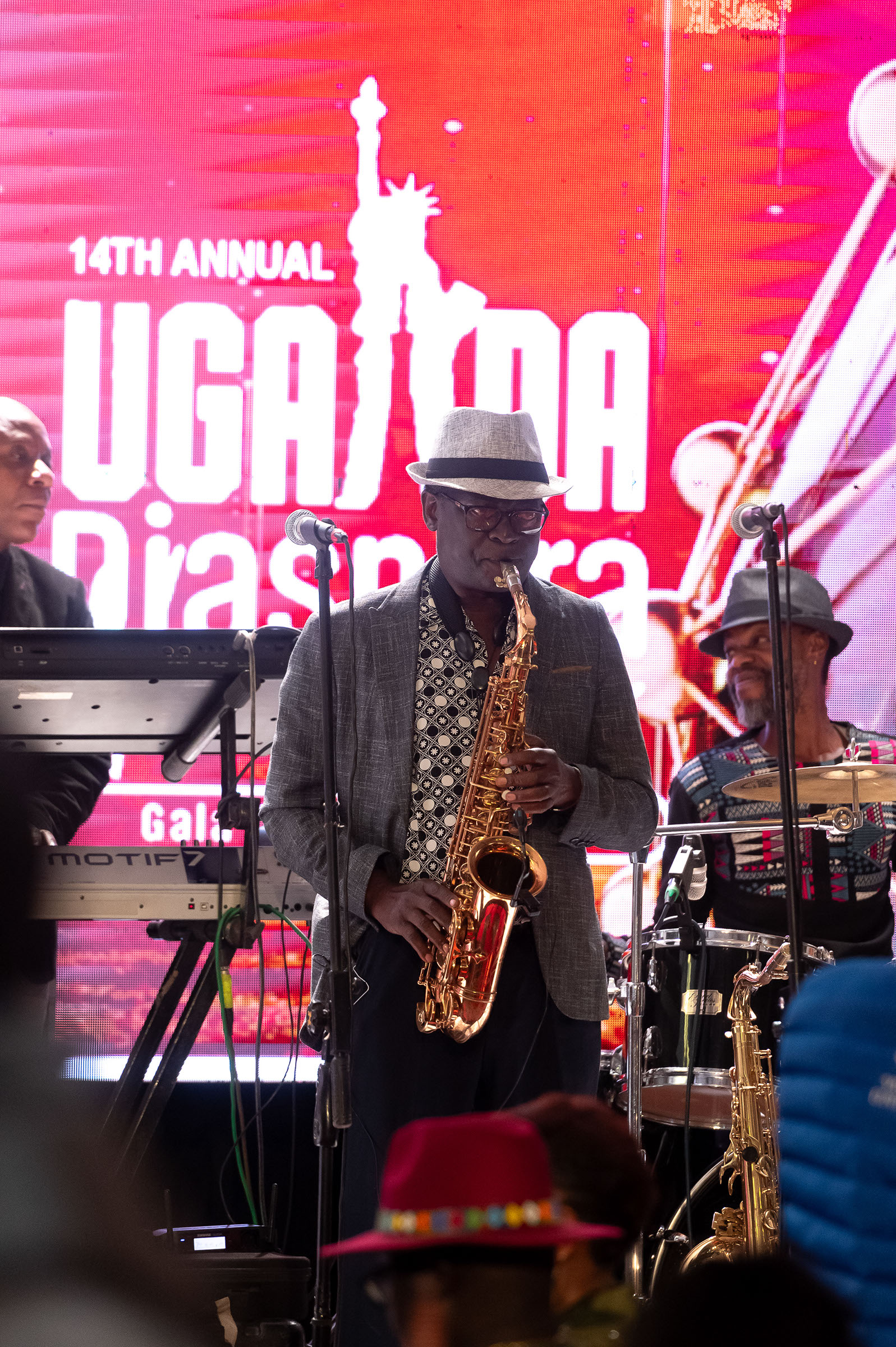
When my cousin took the stage and performed, something shifted. Her poetry style, unique and moving, held the entire room spellbound. Sharing her struggles with mental health, a fate all of us are bound to face, made her relatable. I found myself misty-eyed listening to her genuinely captivating words. And to cheer us up, she performed her song Nzikiliza while entertaining us with a subtle Kiganda dance.
While she was already winning hearts, I was still searching for my spark of amusement. I was convinced it wouldn’t come—until Ronnie Mayanja, the event’s founder and organiser, took the microphone. He began introducing key figures from the Diaspora, each stepping forward to share their story.
And we were treated to a Q and A with celebrated Ugandans like former Limit X member Paul Kimuli. Limit X is a boy band that took Uganda by storm around the 1990s and early 2000s, becoming one of the country’s most iconic gospel music groups. Kimuli left the country as an engineering student at Makerere University in search of a better life in the UK. As good fortune would have it, he eventually graduated with first-class honours in engineering and has since worked with telecommunications giants such as Nokia, Samsung, and Apple. He has built the biggest primary school in Nalumunye, a suburb of Kampala, which contributes to hundreds of children’s education and employment of local staff. He said his story is one of continuous reinvention, and from him, many Ugandans are rightly inspired.
The other was Robert Katende, the man behind the inspiring story of Queen of Katwe, who shared insights about the film and the incredible journey of the young actors who brought it to life. He highlighted how the actors, many of whom came from humble backgrounds, blossomed through life—gaining confidence, exposure, and opportunities beyond their expectations.
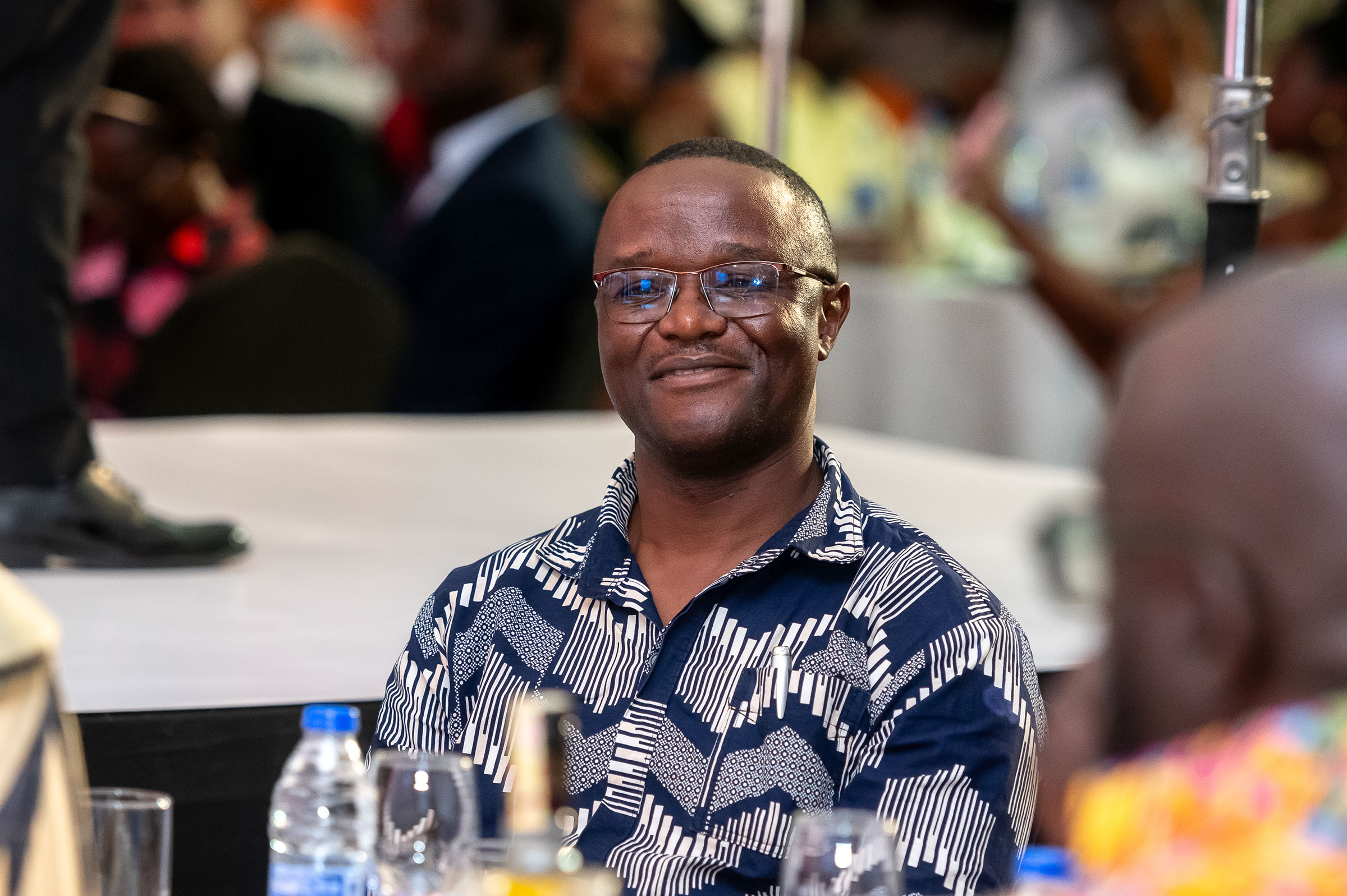
And Agnes Igoye, the President of the Clinton Global Initiative University Board, was also recognised. At the Inter-governmental Authority on Development (IGAD), she is the technical expert-Labour Mobility and Free mMovement of persons serving eight countries. She is also known for her great work as the President of the Clinton Global Initiative University Board, and she was celebrated for her initiative—the Young Professional Mentorship Programme—and for building a centre to support trafficking survivors in Uganda. Igoye has received numerous other awards and was named one of New African Magazine’s 100 Most Influential Africans.
The government was well represented at the event, with Ambassador Ronald Mugerwa and Muhammed Begonza, the Head of Diaspora Events, in attendance. Their presence underscored the government’s commitment to engaging with the Ugandan diaspora and fostering stronger connections between Ugandans abroad and their homeland.
Awardees
Even more inspiring was, watching some of the guests receive their much-deserved awards. Dr Lawrence Muganga, the Vice-Chancellor of Victoria University, after receiving his award, said he had worked with people of all sizes and colours, but it was because of the Diaspora Gala that he felt seen. And that goes to show that east or west, home is best. Since returning home, Dr Muganga has scaled numbers at Victoria University and charted a new course for higher education by weaving artificial intelligence and digital tools into every programme.
Dr Muganga’s vision goes beyond classrooms and textbooks. He uses his global network to open doors for deserving students, offering scholarships and second chances, and ensuring that higher education stays within reach for all.
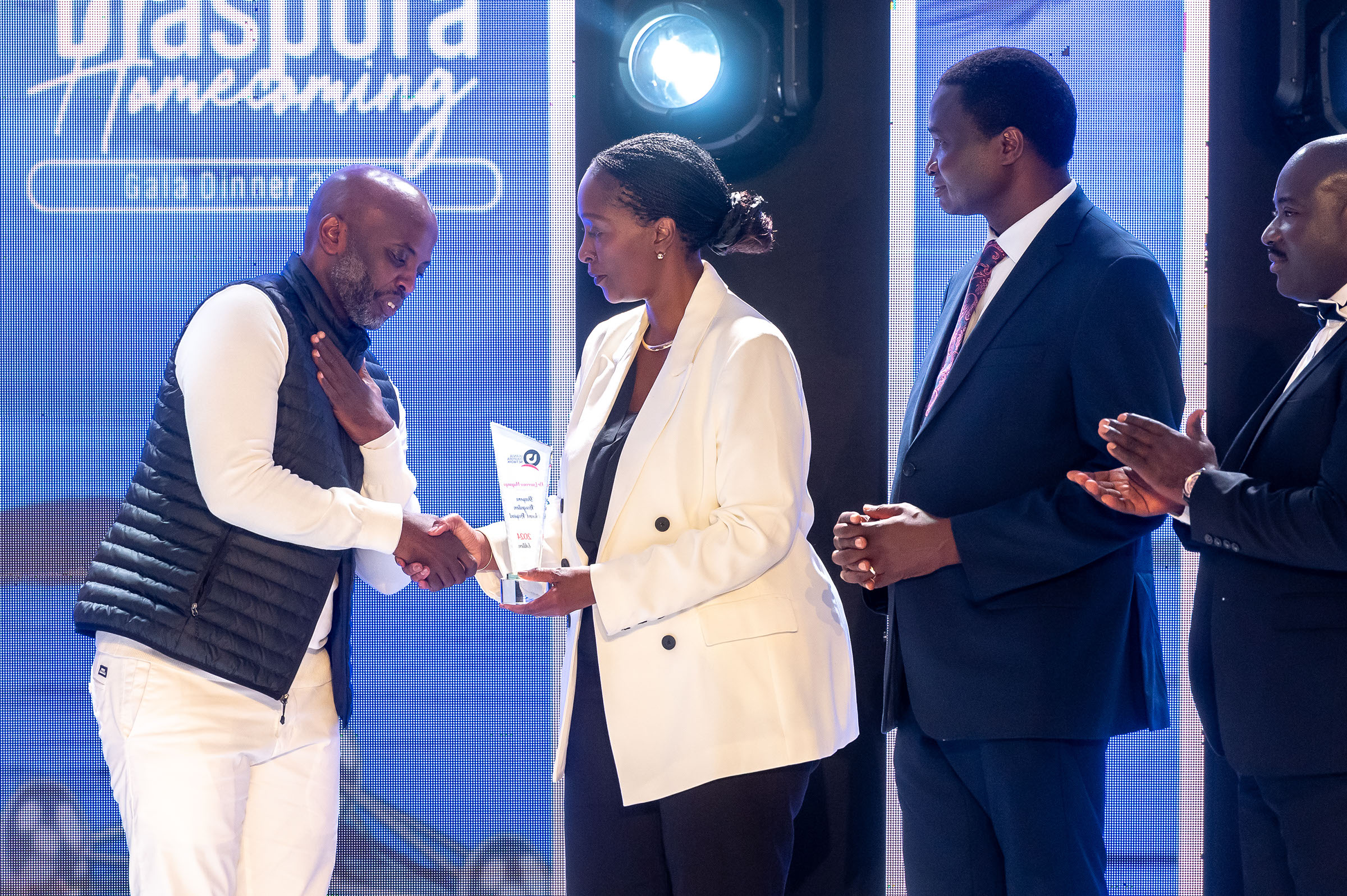
Also worth noting is Dr Robert Kalyesubula, the head of the Uganda Kidney Foundation, an organisation dedicated to raising awareness, improving treatment, and advancing kidney health in Uganda. As a young nephrologist, he worked with colleagues to set up the Foundation, which has helped support the training of nephrologists, the setting up of dialysis units in Uganda, and ultimately, supporting the first kidney transplant in the country.
And, of course, master storytellers like BBC’s Alan Kasujja, the renowned host of Africa Daily on BBC, were celebrated for their immense contributions to journalism and storytelling. Kasujja spoke passionately about the transformative power of storytelling in shaping Africa’s narrative, highlighting its role in shedding light on critical socio-economic issues, amplifying underrepresented voices, and driving meaningful conversations across the continent. His impact is evident through numerous thought-provoking documentaries and in-depth reports that capture Africa’s triumphs, challenges, and aspirations, making him a key figure in reshaping how the world perceives the continent.
Another distinguished journalist was BBC’s former producer Kassim Kayira, whose storytelling has left a profound impact on millions across the world. With a career spanning decades, Kayira has covered some of the most pressing global issues, from gripping war reports on the frontlines to in-depth investigative pieces on environmental conservation, cultural heritage, and economic development. His fearless reporting has not only informed audiences but also shaped discussions on Africa’s evolving landscape, giving a voice to communities often overlooked by mainstream media.
For me, listening to all those stories was my “aha” moment. Simply knowing that there are ordinary Ugandans doing extraordinary things changed me. And in that moment, I was so grateful I had decided to come.
Entertainment
I didn’t want the speeches to end, but the night had more to offer. While the food proved to be endless, the feast of countless soups, local dishes, and an array of dishes was impossible to devour.
Soon after, fashion star Ras Kasozi’s designs graced the stage, each model a walking masterpiece, a vibrant homage to Uganda’s traditions and style. Founded in 2010 in Uganda, Kas Wear is one of the leading international fashion design houses from East Africa and a symbol of Uganda’s luxury brand.
As if to put the cherry on the cake, artistes Karole Kasita and King Saha took to the stage. Karole Kasita delivered an electrifying performance that left the audience in awe. With her signature high-energy dance moves and powerful vocals, she transformed the stage with her enthralling hits ‘Balance’, ‘Binyuma’ and ‘Chekecha’. Her dynamic presence and engaging performance style deeply excited the guests, making it a night to remember.
King Saha’s performance was marked by intricate dances and an infectious energy that invited the audience to sing along to ‘Biri Biri’, ‘Hullo Hullo’ and ‘Nakyala’.
Meanwhile, Afrigo Band literally served music to the ear all night long. And if music were food, theirs was a buffet. As they played ‘Nfunda N’omubi’, ‘Obangaina’, ‘Tojjanga’, and other classics, my relatives danced with pure, unfiltered joy. Their Kiganda dance was effortless, free—like they were back in our living room at home. Seeing them like that, I realised how much I had missed them. As a Ugandan with half her family living overseas, distance robs you of quality time until moments like these.
People didn’t leave the auditorium until 3:00am, and there was no sign of a tired soul. The energy was infectious, with every person fully immersed in the moment. Afrigo music, the company, and the undeniable thrill made it impossible for anyone to feel the weight of exhaustion. This wasn’t just a party; it was an unforgettable celebration of pure joy and connection.
Business Breakfast
The event was also broadcast live on BBS television and was preceded by a business breakfast on Saturday, December 28. While the dinner had brought the entertainment, the business breakfast brought the networking. Entrepreneurs, vendors, businesspeople, and government officials came together to find solutions that could benefit both personal ventures and Uganda as a whole.
Among those present were officials from the Bank of Uganda, Uganda Investment Authority, Uganda Revenue Authority, NIRA, Uganda Tourism Board, and the Uganda Private Sector, who discussed key investment options such as Treasury Bonds and real estate opportunities.
According to the Patron of the Uganda Diaspora Network, Dr Maggie Kigozi, key areas of focus for 2025 include:
• Diaspora banking: Exploring financial services tailored for the diaspora.
• Real estate: Investment opportunities in Uganda’s growing property market.
• Mobile money transfer: Leveraging technology for seamless financial transactions.
• Healthcare: Engaging in healthcare initiatives that benefit both diasporans and residents.
• Life insurance and mortgages: Enhancing financial security for families both in Uganda and abroad.
• NIRA and Dual Citizenship: Understanding the benefits of national identity and citizenship for diaspora members.
And I can hardly wait for this year’s event scheduled for December 29-30 at the Sheraton Kampala Hotel.
Check out the Photo highlights in the Gallery below




